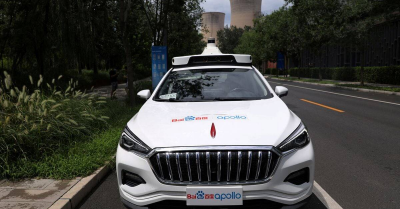Reuters-US lawmakers raise concerns over Chinese self-driving testing data collection
November 16, 2023 2 min 379 words
这则报道揭示了一组美国国会议员对中国自动驾驶测试中数据收集的担忧。他们要求十家中国相关公司就在美国进行的自动驾驶车辆测试中的数据收集做出解释。这其中包括百度、蔚来、小鹏等公司。议员们担忧这些公司搜集敏感信息,涉及美国公民、日常生活、国家基础设施及联网技术。他们呼吁这些公司提供更多关于在美国道路测试期间搜集的信息的透明度,以及它们是否与中国共产党有财务联系。在过去的一年中,中国自动驾驶公司在加利福尼亚测试行驶了超过45万英里。交通部长彼得·布蒂吉格曾表示对中国自动驾驶公司在美国存在国家安全担忧。这引发了对类似于电信和TikTok的交通技术的关切。报道揭示了中美科技竞争和隐私保护的复杂议题,需要更深入的讨论和监管。
A bipartisan group of U.S. lawmakers raised alarm about Chinese companies collecting and handling sensitive data while testing autonomous vehicles in the United States, according to letters seen by Reuters on Thursday.
The lawmakers, including House of Representatives Energy and Commerce Committee Chair Cathy McMorris Rodgers and China select committee Chair Mike Gallagher, asked 10 Chinese-related companies to answer questions by Nov. 29 on data collection practices from ongoing autonomous vehicle testing in California and elsewhere.
The companies - including Baidu (9888.HK), Nio (9866.HK), WeRide, Didi Chuxing, Xpeng (9868.HK), Inceptio, Pony.ai, AutoX, Deeproute.ai and Qcraft - did not respond to requests for comment or could not immediately be reached.
The previously unreported letters, also signed by Democrats Frank Pallone and Raja Krishnamoorti and 10 other lawmakers, said the companies "collect sensitive information about our citizens and their daily routines, the nation's infrastructure, and connected technologies."
"There needs to be greater transparency around what information you collect while testing on American roads, and whether you are financially tied to the Chinese Communist Party," according to the previously unreported letters.
The lawmakers asked what data is collected in the United States, whether it is stored in China, and if it is shared with the Chinese government or others. They also asked if the vehicles collect data on U.S. infrastructure during testing.
The letters said in the 12 months ended November 2022 that Chinese AV companies test drove more than 450,000 miles in California. In July, Transportation Secretary Pete Buttigieg said his agency had national security concerns about Chinese autonomous vehicle companies in the United States.
"Whether we are talking about hardware or software, in the same way there are concerns around telecom or TikTok, there are concerns around transportation technologies," Buttigieg told Reuters.

